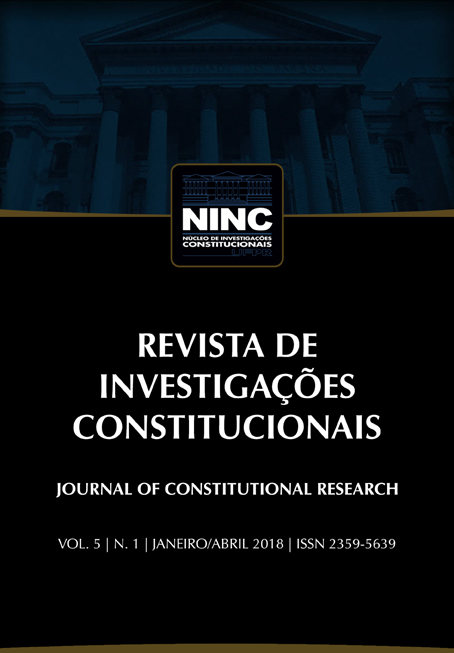TWAIL – “Third World Approaches to International Law” and human rights: some considerations
DOI:
https://doi.org/10.5380/rinc.v5i1.54595Keywords:
TWAIL, Third World Approaches to International Law, International Law, Third World, Human Rights.Abstract
TWAIL is both a political and intellectual movement and, therefore, has multiple perspectives. While the first academic conference of TWAIL was held at Harvard Law School in March 1997, Third World perspectives of international law are part of a long tradition of critical internationalism. In this essay we will try to explain the meaning of the movement according to its most important scholars, and the TWAIL concern to the human rights discourse. It can be said that according TWAIL the historical model of human rights cannot respond to the needs of the Third World except if there is a radical rethinking and restructuring of the international order, abandoning the efforts to universalize an essentially European corpus of human rights.
References
BACHAND, Rémi. Critical Approaches and the Third World. Towards a Global and Radical Critique of International Law. Speech at University McGill, 24 mar. 2010.
BACHAND, Rémi. Les Third world approaches to international law: Perspectives pour une approche subalterniste du droit international. In: TOUFAYAN, Marc; TOURME-JOUANNET Emmanuelle; RUIZ FABRI, Hélène. Droit international et nouvelles approches sur le Tiers-monde: entre répétition et renouveau. Paris: Société de législation comparée, 2013
BADARU, Opeoluwa Adetoro. Examining the Utility of Third World Approaches to International Law for International Human Rights Law. International Community Law Review, London, vol. 10, n. 4, p. 379-387, 2008.
BAXI, Upendra. Too many or too few, human rights?. Human Rights Law Review, [s.l.], vol. 1, n. 1, p. 1-9, mar. 2001.
CHIMNI, B. S. Third World Approaches to International Law: A Manifesto. International Community Law Review, London, vol. 8, n. 1, p. 3-27, 2006.
GALLIÉ, Martin. Les théories tiers-mondistes du droit international (TWAIL). Un renouvellement? Revue Études internationales, vol. 39, n. 1, p. 17-38, mars 2008.
MUTUA, Makau. Change in the Human Rights Universe. Harv. Hum. Rts. J., Cambridge, vol. 20, p. 3-5, 2007.
MUTUA, Makau. Savages, Victims and Saviors. The Metaphor of Human Rights. Harvard International Law Journal, Cambridge, vol. 42, n. 1 p. 201-245, 2001.
MUTUA, Makau. The Ideology of Human Rights. Virginia Journal of International Law, Charlottesville, vol. 36, p. 589-658, 1996.
MAKAU, Mutua. What is TWAIL? American Society of International Law Proceedings, Washington, vol. 94, 31-38, 2000.
PARMAR, Pooja. TWAIL: An Epistemological Inquiry. International Community Law Review, London, vol. 10, n. 4, p. 363-370, 2008.
SHETTY, Vikrant Dayanand. Why TWAIL Must Not Fail: Origins and Applications of Third World Approaches to International Law. King’s Student Law Review, London, vol. 3, n. 2, p. 68-82, apr. 2012.
SUNTER, Andrew F. TWAIL as Naturalized Epistemological Inquiry. Canadian Journal of Law & Jurisprudence, Cambridge, vol. 20, n. 2, p. 494-498, 2007.
Downloads
Published
How to Cite
Issue
Section
License
Authors who publish in this Journal agree to the following terms:
- Authors retain copyright and grant the Journal of Constitutional Research the right of first publication with the article simultaneously licensed under the Creative Commons - Attribution 4.0 International which allows sharing the work with recognition of the authors and its initial publication in this Journal.
- Authors are able to take on additional contracts separately, for non-exclusive distribution of the version of the paper published in this Journal (eg.: publishing in institutional repository or as a book), with a recognition of its initial publication in this Journal.
- Authors are allowed and encouraged to publish their work online (eg.: in institutional repositories or on their personal website) at any point before or during the submission process, as it can lead to productive exchanges, as well as increase the impact and the citation of the published work (see the Effect of Open Access).
























